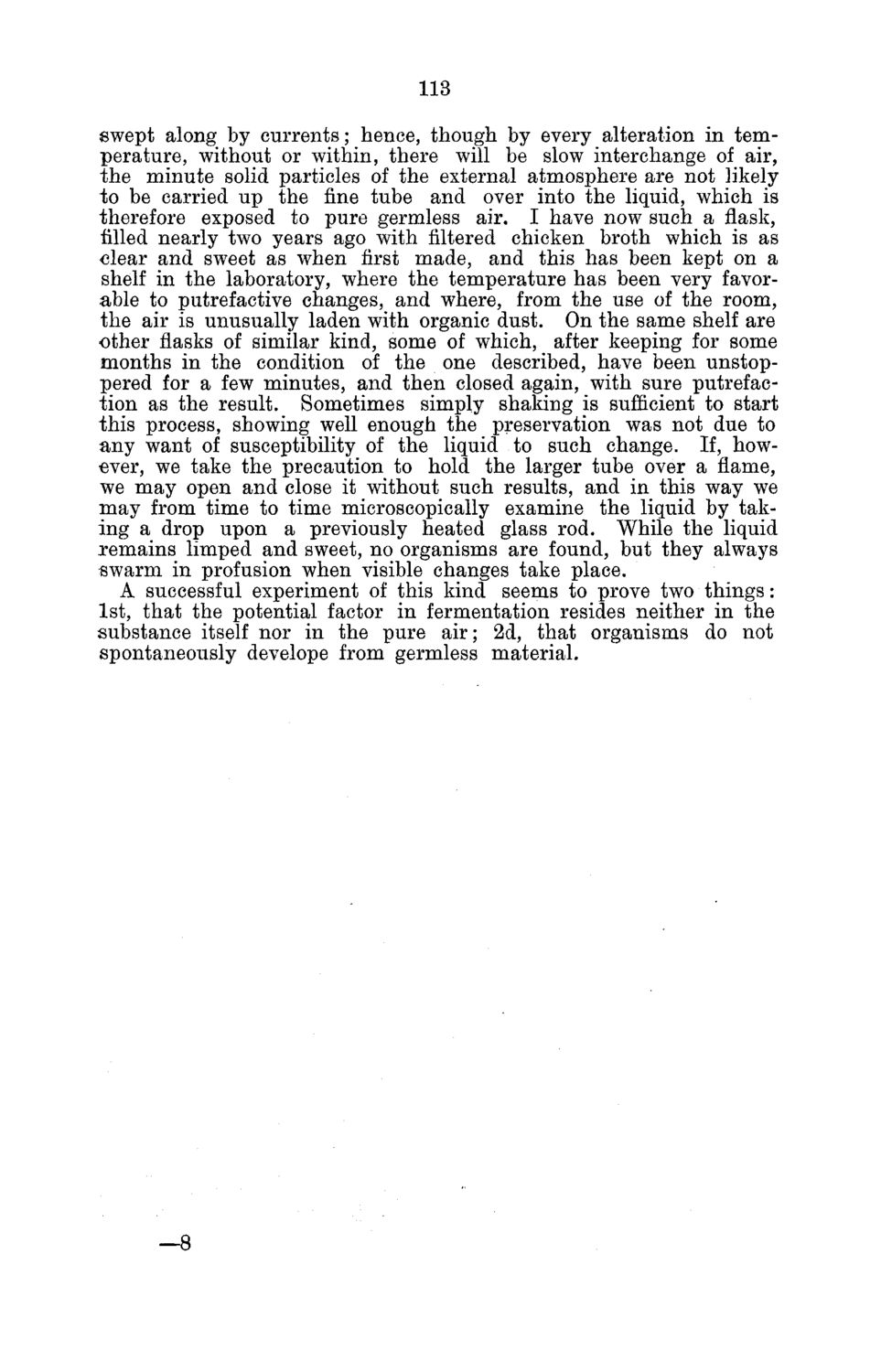| |
| |
Caption: Board of Trustees Minutes - 1882
This is a reduced-resolution page image for fast online browsing.

EXTRACTED TEXT FROM PAGE:
113 swept along by currents; hence, though by every alteration in temperature, without or within, there will be slow interchange of air, the minute solid particles of the external atmosphere are not likely to be carried up the fine tube and over into the liquid, which is therefore exposed to pure germless air. I have now such a flask, filled nearly two years ago with filtered chicken broth which is as clear and sweet as when first made, and this has been kept on a shelf in the laboratory, where the temperature has been very favorable to putrefactive changes, and where, from the use of the room, the air is unusually laden with organic dust. On the same shelf are other flasks of similar kind, some of which, after keeping for some months in the condition of the one described, have been unstoppered for a few minutes, and then closed again, with sure putrefaction as the result. Sometimes simply shaking is sufficient to start this process, showing well enough the preservation was not due to any want of susceptibility of the liquid to such change. If, however, we take the precaution to hold the larger tube over a flame, we may open and close it without such results, and in this way we may from time to time microscopically examine the liquid by taking a drop upon a previously heated glass rod. While the liquid remains limped and sweet, no organisms are found, but they always swarm in profusion when visible changes take place. A successful experiment of this kincT seems to prove two things: 1st, that the potential factor in fermentation resides neither in the substance itself nor in the pure air; 2d, that organisms do not spontaneously develope from germless material. —8
| |